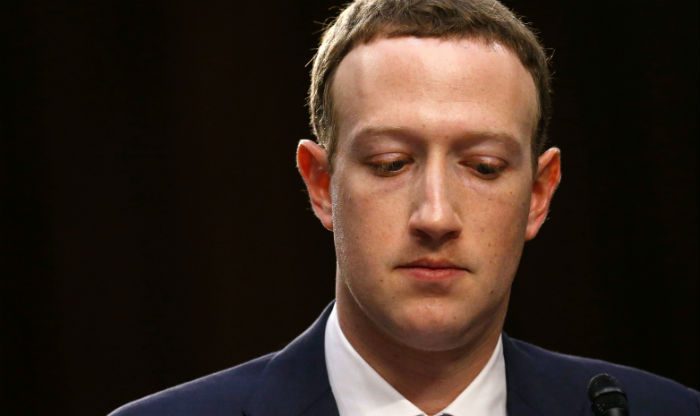
Facebook’s mission was to make the world more “open and connected”; Google’s motto was “Don’t Be Evil.” Both companies have now changed those — and much else. A two-part Frontline special and a new documentary take a look at just what’s been altered, and what it means for all us.
Available online after airing Monday and Tuesday on PBS’ Frontline, “The Facebook Dilemma” looks at how the social-media behemoth has affected both our privacy and our democracy. Here are the full episodes on YouTube.
Available on Amazon.com and iTunes, The Creepy Line is from investigative journalist Peter Schweizer and the team behind his previous film, Clinton Cash. It looks at Facebook but focuses more heavily on Google, the search engine that has become deeply intertwined in millions of lives and businesses.
It takes its title from a 2010 quote from Google executive Eric Schmidt, who said that the company’s goal was to “get right up to the creepy line and not cross it.”
Both films also focus on the effect of these tech giants on politics, for good, bad and, we’re not even sure yet.
The Facebook Dilemma traces the growth of the platform from its early days at Harvard, connecting college students, to its current world-straddling status. Beginning with the Arab Spring in 2010, the ability of people to use Facebook to affect, and report on, political change became readily apparent. But, in truth, it was nothing new.
As related by famed journalist David Carr in a New York Times column dated Nov. 9, 2008, a mutual friend brokered a 2007 meeting between Netscape founder and Facebook board member Marc Andreessen and the junior senator from Illinois.
“It was like a guy in a garage who was thinking of taking on the biggest names in the business,” Mr. Andreessen recalled. “What he was doing shouldn’t have been possible, but we see a lot of that out here and then something clicks. He was clearly supersmart and very entrepreneurial, a person who saw the world and the status quo as malleable.”
And as it turned out, President-elect Barack Obama was right.
But, in the wake of 2016, when an election didn’t turn out the way much of Silicon Valley — and the mainstream media — expected, way more of Facebook’s political underbelly was exposed. That included the way that foreign entities manipulated the platform to widen rifts in the American body politic and to disseminate misinformation.
There are still plenty of unanswered questions about foreign, especially Russian, involvement in the 2016 presidential race. But, as The Facebook Dilemma illustrates, one thing’s for sure: foreign operatives were actively playing both sides of the field online (and in real life), reaching their goal of sowing discord and confusion.
At the same time, people who opted in to a third-party Facebook survey and app handed their information to a company that then exploited it to target political content (Note: if you don’t want this to happen, NEVER take any survey or quiz connected to your Facebook account). But, as the Frontline episodes show, Facebook’s own ability to help advertisers target specific audiences meant that savvy political players didn’t even have to do anything underhanded — the tools were right there.
The same questions about user privacy and targeting also apply to Google, which has been accused of manipulating search results. In 2017, the European Union fined the company $2.7B for doing just that with shopping services. There’s also evidence that users have found ways to affect the Google algorithm and alter the way images come up in search.
In an interview from a film festival where he was showing The Creepy Line, Schweizer said:
The issue of kind of fake news that’s out there right now about people making things up or … that’s always been an issue and a problem, and it gets magnified with the online space. But for me the issue is not so much fake news, which is competitive, right, somebody can put out one fake news, somebody else puts out another … The problem with Google is Google can essentially decide, we don’t like this company, we don’t like this product, we don’t like this person. And we can essentially suppress positive stories and push negative stories
Whatever the truth of all of this, it’s inescapable that companies like Facebook and Google have massive databases of information about billions of people. That raises concerns about privacy to a level never known in human history. But, young people raised in a digital world may not even realize, nor care, that they are exposed online.
Asked about this, Schweizer said,
The other point that we make is that the issue of privacy is a real one. It appears to be kind of generational. I mean, I’m 53, and people of my generation seem to be more concerned about it than somebody, say, 23.
But the point we try to make is it’s not just about this issue of privacy. It’s that once they have this information, they can essentially use information about you against you. They can manipulate you. So it’s not just about this company knowing things about you. It’s what are they going to do with that information.
One of the points we make in the film is that they use that information against you in a way that is beneficial to them and it’s damaging to you. And I think if people start to grasp that concept, they’ll become more concerned about privacy than they maybe are right now.
You might wonder, what is the government doing about tech companies that are essentially functioning as media platforms? With tech execs like Facebook co-founder and CEO Mark Zuckerberg being called before Congress, that’s a question that’s getting a lot of attention.
Said Schweizer:
One of the things we talk about in the film is that Google and Facebook are essentially unregulated, because under the Communications Decency Act of 1996, they’re essentially categorized as neutral platforms. And what they basically have argued is that, for regulatory purposes, we’re kind of a telegraph. We’re just taking information from one point, and we’re relaying it to another.
And that carve-out means they’re not treated like media companies. Media companies that edit content, that shift content … One of the points we make in the film is that Facebook and Google are no longer neutral platforms. We know that they exert editorial control, the debate, I think, is really how much editorial control.
There’s an active debate — check out this detailed article at the tech journal Wired — about how Facebook and its like should be regulated. Until that all happens, though, users of search engines like Google or any social platforms always have the opportunity to opt out of using the platforms or clear their search history. But how practical is that in the modern connected world?
As Luke 8:17 says:
For there is nothing hidden that will not become visible, and nothing secret that will not be known and come to light.
Of course, Luke was speaking of God, before whom nothing can be hidden. But in the digital world, we’re not going to have to wait for the Final Judgment for our lives to be exposed — it could happen any day.
In the meantime, here’s some advice from Common Sense Media …
Images: Courtesy Reuters/PBS/Frontline














